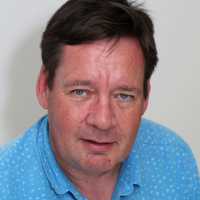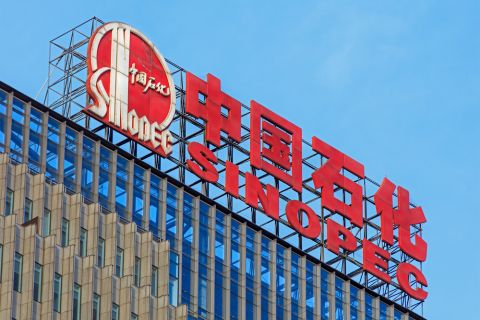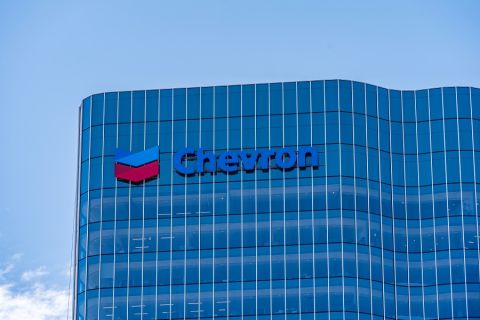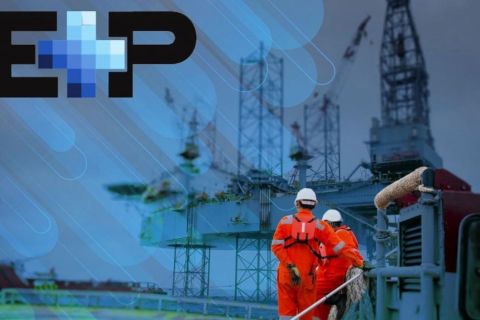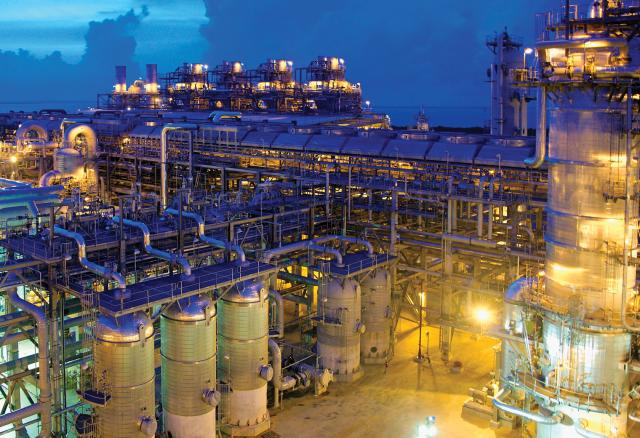
The Darwin LNG gas plant (Source: ConocoPhillips)
BRISBANE, Australia—The dust has barely settled from Australia’s federal elections, but there was no shortage of advice for the ruling Liberal Party at the opening of the APPEA Conference on how to woo continued investment.
Hosted in resource-rich Queensland—the swing state that kept incumbent Prime Minister Scott Morrison in power against all poll predictions—the lead address at the opening of the Conference saw Ryan Lance, chairman and CEO of ConocoPhillips, sounding a note of optimism, subject to government cooperation.
Lance said Australia would need to address competitive, cost and regulatory problems to sustain its lead role as an LNG exporter in the face of global competition.
“We believe it’s possible,” Lance said, citing ConocoPhillips historical credentials from a two-decade legacy and AU$20 billion (US$12,386,404,914) investment in Australia as operator of Darwin LNG and its partnership in APLNG in Queensland.
Lance said ConocoPhillips was ready for a final investment decision to develop the Barossa Field north of Darwin to backfill its LNG plant in the Northern Territory. APLNG, already supplying 20% to 30% of east coast domestic demand in Australia, would “remain a key supplier for many years” and is willing to up the ante.
“There are several large, well-appraised gas resources offshore from Darwin. They’re potentially a 100-year supply. The Darwin plant is licensed to produce 10 million tons annually. So developing additional resources could one day help support a second Darwin liquefaction train,” Lance said.
RELATED ARTICLE: ConocoPhillips Pursues More Growth Opportunities As Production Rises
Nevertheless, government cooperation was critical to justify investment in the face of competition from short-term U.S. onshore shale wells, medium-term offshore development in the Asia Pacific and North Sea, or long-term projects in Alaska.
“Each project has its advocates. We have to be hard-eyed judges of their merits. We choose those offering the best returns,” he said.
He said infrastructure bottlenecks, including pipeline capacity upgrades, had to be addressed, to develop resources and meet the east coast’s gas needs.
“This has traditionally been a wonderful place to do business, and a trusted host nation. We’d like to see this continue,” Lance said. “We believe that Australia can continue to prosper and progress by wisely utilizing its natural endowment of energy resources.”
However, the ConocoPhillips boss cautioned, “Fiscal and regulatory environments should be stable. There should be no sudden or dramatic changes in taxation, or in regulatory rulemaking. We also look to government for leadership in ensuring the sanctity of contracts, in this case between exporters and importers.
“We rely on government to open land for resource exploration and development.”
He warned that Australia’s current climate of policy uncertainty called for government intervention.
“That raises concerns here, more than we’ve had in past years. We’re seeking clarity and stability to provide confidence around the viability of future investments,” he said. “We want Australian investments to compete, and we’re able and willing to work with government. We believe that wise policy can meet the needs of all stakeholders.”
Lance said it was critical to cast the net wider in the search for resources.
“Our industry has an old saying, ‘Look for resources where you’ve already found them’. We believe more Australian resources await discovery and development.”
“It’s important that contracts are honoured,” he said of government intervention for domestic supply. “Gas policy should support the sanctity of our commitments to our customers, both domestic and export.
“We’re also concerned about proposals that our industry should subsidize other industries. We believe that would compromise market competition. And it would jeopardize investments in the gas resources needed for the future.”
Zoe Yujnovich, APPEA chairwoman and executive vice president at Shell Australia, said Australia’s recent federal election was over, but “for our industry our campaigning has barely begun.”
“The coalition government has been returned to office with a mandate from the quiet Australians, as the Prime Minister describes them and as the Prime Minister noted, people want to see the politicians simply get back to work,” Yujnovich said.
She said the industry had invested more than $350 billion dollars into the Australian economy over the past decade and created or supported more than 100,000 jobs.
“We need to keep advocating for the role of gas and not become complacent about its critical role to provide cleaner energy across the nation and across the world. We can’t afford to rest.
“Our opponents are well orchestrated, well-funded and well drilled on tactics aimed to destroy an industry that has overwhelmingly been a force for good.,” she said. “We know we are operating in a responsible way in regional Australia, we just need to tell our story with more relevance and more vigour in the cities. It’s here where we face the strongest ideological opposition. Armed with megaphones, or iPhones, an increasing number of professional activists and huge armies of ideologically driven volunteers are waging a virtual war with religious zealotry (sic).
“What the industry needs to avoid is being drawn into the trap of either debates, domestic or export energy, hydrocarbons or renewables, solar or gas batteries or pumped hydro or a myriad of other technologies. These oppositional constructs are as deceptive as a sideshow hall of mirrors because they create division between mutually beneficial technologies.
“We must reframe the debate to explain that, for example, that not only can natural gas and renewables coexist, but they are perfect energy partners.”
Recommended Reading
Sinopec Brings West Sichuan Gas Field Onstream
2024-03-14 - The 100 Bcm sour gas onshore field, West Sichuan Gas Field, is expected to produce 2 Bcm per year.
Chevron Hunts Upside for Oil Recovery, D&C Savings with Permian Pilots
2024-02-06 - New techniques and technologies being piloted by Chevron in the Permian Basin are improving drilling and completed cycle times. Executives at the California-based major hope to eventually improve overall resource recovery from its shale portfolio.
US Gas Rig Count Falls to Lowest Since January 2022
2024-03-22 - The combined oil and gas rig count, an early indicator of future output, fell by five to 624 in the week to March 22.
CEO: Continental Adds Midland Basin Acreage, Explores Woodford, Barnett
2024-04-11 - Continental Resources is adding leases in Midland and Ector counties, Texas, as the private E&P hunts for drilling locations to explore. Continental is also testing deeper Barnett and Woodford intervals across its Permian footprint, CEO Doug Lawler said in an exclusive interview.
E&P Highlights: April 8, 2024
2024-04-08 - Here’s a roundup of the latest E&P headlines, including new contract awards and a product launch.

